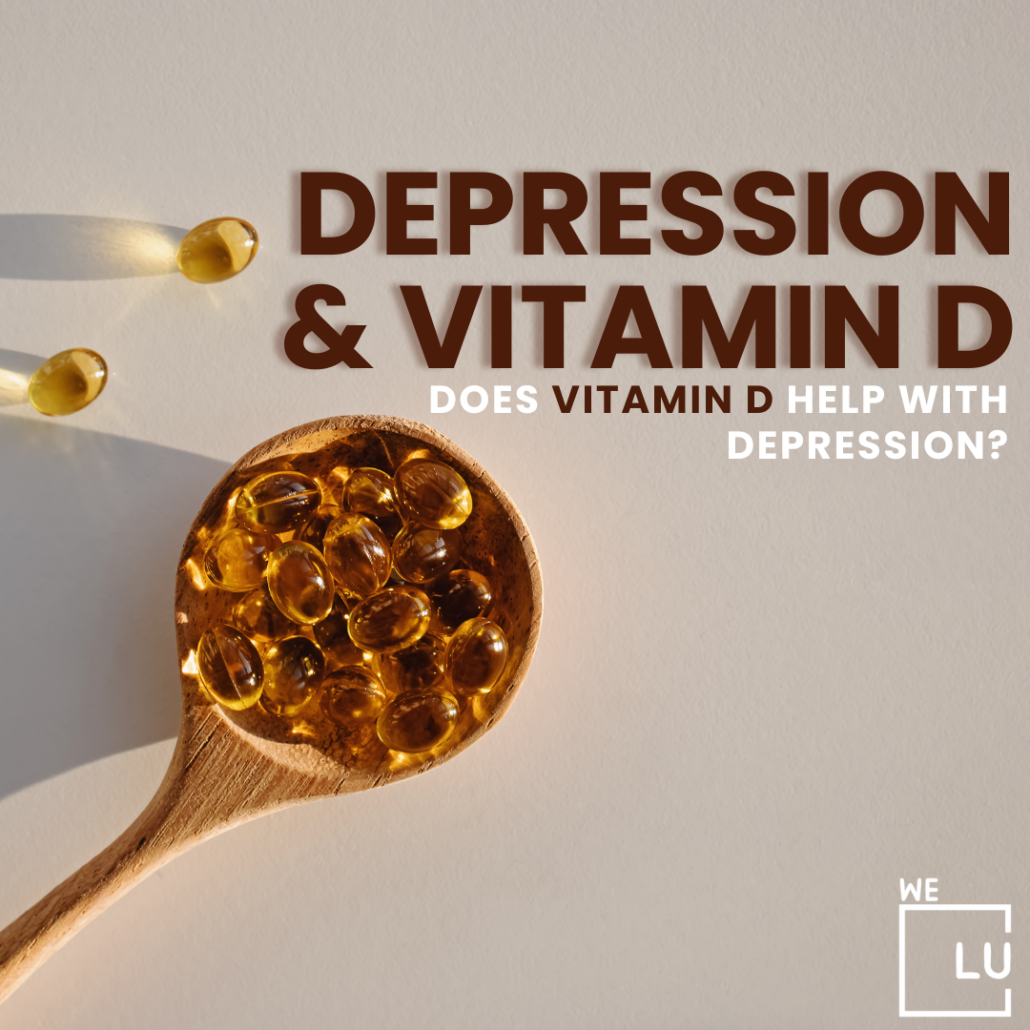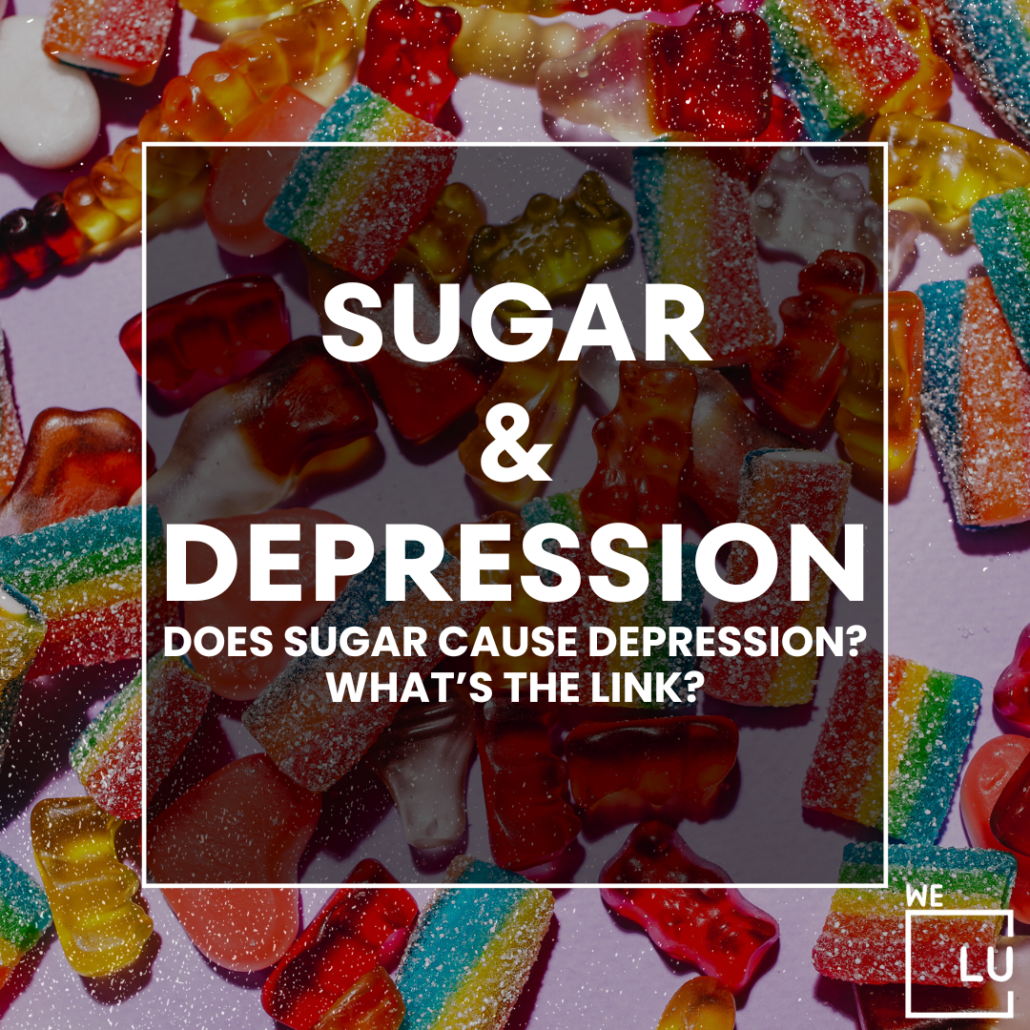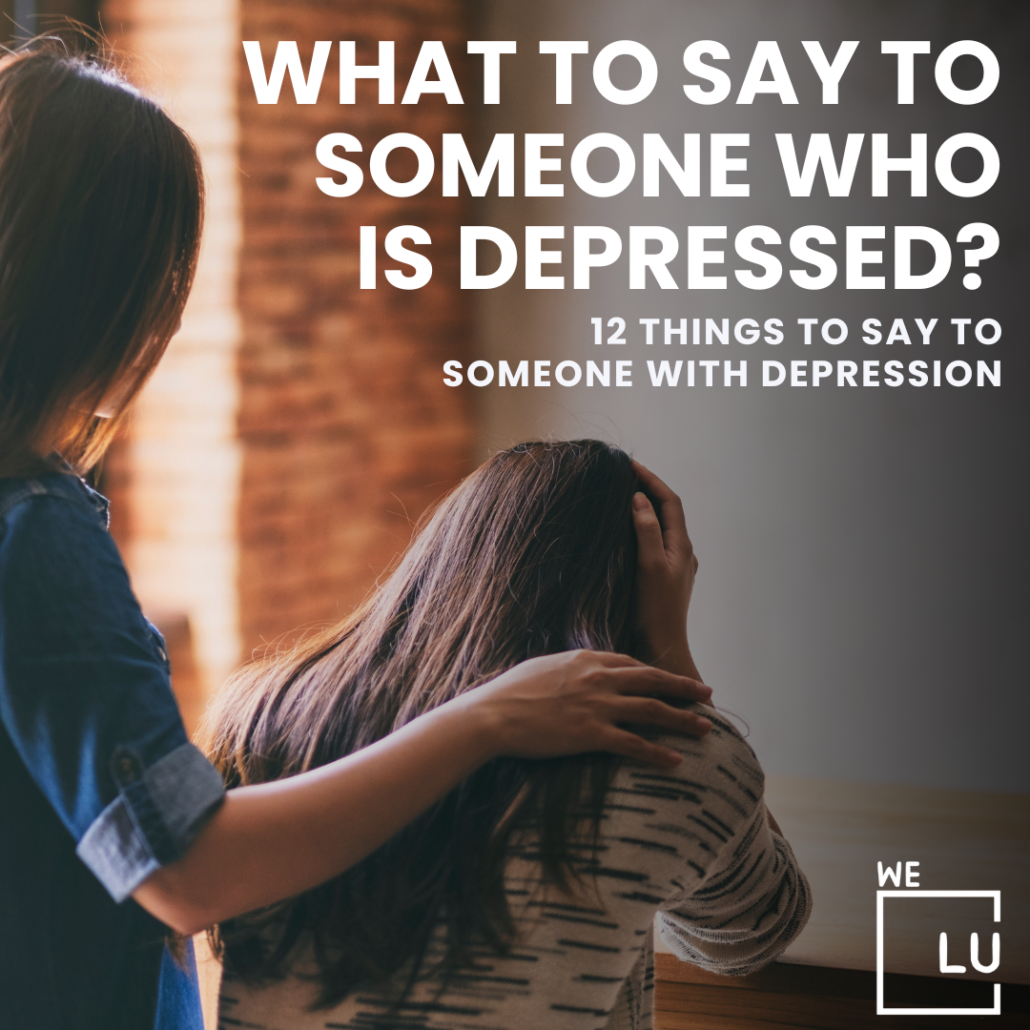Does Vitamin D Help With Depression?
Vitamin D, often called the “sunshine vitamin,” has been associated with potential mood-enhancing effects beyond its role in supporting physical health.
Studies have suggested that supplementing with vitamin D may help alleviate depressive symptoms, with results comparable to antidepressant effects, as detailed in a review published in the Nutrients journal in April 2014. Another review in the Psychosomatic Medicine journal from the same month, although less conclusive, indicated that increased vitamin D intake might assist in reducing severe depression symptoms. Prior research suggests that individuals with more severe depression might benefit more from supplements compared to those with milder symptoms.
A study published in Cureus in June 2018 revealed that approximately 40% of individuals are not obtaining sufficient vitamin D. The amount of vitamin D obtained often depends on geographical location. Residents in northern areas, such as San Francisco, Denver, St. Louis, and Richmond, Virginia, may struggle to receive adequate sunlight.
Few natural food sources contain vitamin D, including fatty fish like salmon and tuna, certain mushrooms, egg yolks, cheese, and cow liver. Additionally, various fortified foods such as cereal, soy, oats, and cow’s milk offer increased levels of fat-soluble vitamins.
Vitamin D Deficiency Depression
You’ll need a blood test to determine your vitamin D status. A result of 30 nmol/L or less is considered too low, and anything over 125 nmol/L is considered too high. According to the National Institutes of Health Office of Dietary Supplements, the aim for 50 nmol/L or slightly higher (ODS).
The risk of vitamin D deficiency is higher for some people, notably those with darker skin. More melanin, the pigment that gives skin its color, is found in darker skin, and more melanin makes it more difficult for the skin to manufacture the vitamin from sunshine.
According to the National Institute of Diabetes and Digestive and Kidney Diseases, people who are lactose intolerant (i.e., those who struggle to consume lactose, a protein found in milk and milk products) may also be less likely to get enough vitamin D because fortified milk is a significant dietary source of the vitamin.
Compared to those of European heritage, people of African-American, Hispanic/Latino, American Indian, and Asian descent are more likely to be lactose intolerant.
According to the ODS, other groups are at a higher risk:
- Older adults (As we age, our skin doesn’t synthesize vitamin D as efficiently.).
- People who are obese (Greater amounts of subcutaneous fat trap vitamin D, possibly interfering with how much of the vitamin can circulate in the body.).
- Anyone who has difficulty absorbing fat, such as those with inflammatory bowel disease or celiac disease or who have had gastric bypass surgery.
- Individuals who do not spend time outdoors or do not expose their skin.
Vitamin B12 Depression
The production of brain chemicals that influence mood and other cognitive processes is aided by vitamin B-12 and other B vitamins. Depression may be associated with low levels of vitamin B-12 and other B vitamins like folate and vitamin B-6.
A poor diet or an inability to absorb the vitamins you take in can cause low levels of vitamins. Getting adequate B-12 may be difficult for older folks, vegetarians, and those suffering from gastrointestinal diseases such as celiac disease or Crohn’s disease. A lack of vitamin B-12 can occasionally happen for unclear causes. If a vitamin shortage is suspected, your doctor may request a blood test to examine levels of B-12 or other vitamins.
A daily vitamin supplement containing vitamin B-12 may help your body acquire the nutrients it needs if you have a vitamin B-12 shortage. However, the effectiveness of vitamin B-12 supplements in lowering the incidence of depression has been questioned, and the results of studies have been conflicting. Before taking a vitamin supplement, consult your doctor because B-12 and other vitamins can interact with some drugs, mainly when used at high levels.
A nutritious diet containing essential nutrients is the best way to ensure you get enough B-12 and other vitamins. Animal items like fish, lean meat, poultry, eggs, and low-fat and fat-free milk are rich sources of vitamin B-12. Breakfast cereals fortified are a rich source of B-12 and other B vitamins.

Skip To:
Learn More:
- Celexa vs Zoloft, Difference and Comparison of Side-Effects. Switching From Celexa to Zoloft. Celexa vs Lexapro vs Zoloft.
- Learn How to Cope with Depression. 10 Ways to Cope with Depression.
- Signs Of Depression In Women To Watch Out For. Comparing Depression in Men Vs Women. What are the Causes of Depression in Women?
- Depression and Anxiety Therapist Fort Lauderdale. EMDR Therapy Fort Lauderdale.
- Postpartum Depression Treatment, Causes, Symptoms, Anxiety in Pregnancy, & Risks
- What Is Mild Depression? Symptoms & Treatment
- What Does Depression Feel Like? Facts About Depression Symptoms
- Are There Stages of Depression? Understanding Symptoms, Causes, and Effective Treatments
- Why Am I So Sad? Causes & Top 10 Coping Tips for Depression
Get Help. Get Better. Get Your Life Back.
Searching for Accredited Dual Diagnosis Mental Health Centers Near You?
Even if therapy failed previously, or are in the middle of a difficult crisis, we stand ready to support you. Our trusted behavioral health specialists will not give up on you. When you feel ready or just want someone to speak to about counseling alternatives to change your life call us. Even if we cannot assist you, we will lead you to wherever you can get support. There is no obligation. Call our hotline today.
FREE 24/7 Dual Diagnosis Mental Health Services Hotline
Factors Affecting Depression and Vitamin D Deficiency
The two factors are probably related because studies have shown that many persons with depression also have low blood levels of vitamin D circulating.
Numerous studies, in particular, have revealed a link between low vitamin D levels during pregnancy and postpartum depression, a type of depression that manifests in the days, weeks, and months following childbirth.
Researchers have also discovered possible links between depression and low vitamin D levels in persons who have multiple sclerosis, gout, chronic spinal cord injuries, and chronic back pain.
Several modest, high-quality studies have shown that taking vitamin D supplements leads to improvements in the signs and symptoms of depression in several different populations.
This potential advantage is not entirely evident, though.
A meaningful difference between taking a placebo or 2,000 IU of vitamin D per day for five years was not identified in a large, high-quality trial involving more than 18,000 depressed individuals.
Numerous further research likewise concluded that vitamin D supplementation had no impact on depression. More research is required to clarify the potential associations between vitamin D deficiency and depression, as well as how vitamin D supplementation may influence depressive symptoms because the results are so contradictory.

End the Emotional Pain. Get Your Life Back.
Feeling Depressed, Anxious or Struggling with Mental Health Illness? Get Safe Comfortable Mental Health Dual Diagnosis High-Quality Therapy From Counselors That Care. Begin Your Recovery Now.
Hotline (855) 940-6125Vitamin D Deficiency Risk Factors
Age, lifestyle choices, and limited sun exposure can all contribute to low vitamin D levels, posing risks associated with insufficiency.
Limited Sun Exposure
For many, sunlight is the primary source of vitamin D. Avoidance of sunlight can lead to a lack of vitamin D, resulting in deficiencies. The sunlight needed varies by location, time of day, and skin tone. Lighter-skinned individuals generally produce vitamin D more efficiently than those with darker complexions.
Dietary Considerations
Natural sources of vitamin D in food are limited. To increase vitamin D intake, consider incorporating more of these natural sources into your diet:
- Salmon.
- Mackerel.
- Other fatty fish.
- Fish liver oils.
- Animal fats.
- Vitamin D-fortified foods like orange juice and cereal.
People following a vegan or vegetarian diet may have insufficient vitamin D intake. Vegan sources include fortified plant-based milk, fruit juices, and UV light-exposed mushrooms.
Darker Skin Tones
Individuals with darker skin, particularly Black individuals in the United States, tend to have a higher prevalence of vitamin D insufficiency. According to a study conducted between 2011 and 2014, about 17.5% of Black individuals faced a risk of vitamin D deficiency, compared to lower percentages in other ethnic groups. Increased melanin levels in darker skin hinder vitamin D synthesis, requiring guidance on sun exposure from healthcare providers.
Obesity Link
A BMI of 30 or higher is associated with vitamin D deficiency. People with obesity may require increased vitamin D absorption compared to those with lower body weights. Healthcare professionals can offer guidance on strategies to elevate vitamin D levels, often recommending high-dose vitamin D supplements to address deficiencies.
Symptoms of Vitamin Deficiency Depression
The symptoms of depression and vitamin D insufficiency are two separate illnesses. Speak to a healthcare provider if you have symptoms of either or both, illnesses.
If you don’t get enough vitamin D, you could experience:
- Aching bones.
- Fatigue or drowsiness.
- Weakness and pain in your muscles and joints.
Symptoms of depression may include:
- Overwhelming feelings of sadness, hopelessness, and helplessness.
- Insomnia or excessive sleepiness known as hypersomnia.
- Loss of interest in activities you once enjoyed.
- Lethargy.
- Extreme weight loss or weight gain.
- Loss of appetite.
- Problems concentrating.
- Forgetfulness.
- Loss of sexual interest.
- Headaches or back pains.
- Anxiety.
- Thoughts of death or suicide.
First-class Facilities & Amenities
World-class High-Quality Mental Health Services & Behavioral Health Substance Abuse Treatment
Rehab Centers TourRenowned Mental Health Centers. Serene Private Facilities. Inpatient Rehab Programs Vary.
Mental Health Helpline (855) 940-6125Proven recovery success experience, backed by a Team w/ History of:
15+
Years of Unified Experience
100s
5-Star Reviews Across Our Centers
10K
Recovery Successes
- Comprehensive Dual-Diagnosis Treatment
- Complimentary Family & Alumni Programs
- Coaching, Recovery & Development Events
- Comfortable Onsite Medical Detox Center
Treating Vitamin D Deficiency and Depression
Depression and vitamin D insufficiency are two distinct illnesses that call for different therapies. Although the evidence is conflicting, treating a vitamin D deficiency may also help with depression.
Vitamins That Help Depression: A healthcare professional may advise you to address vitamin D deficiency and its symptoms by increasing your intake of this vital nutrient. Ways you can consume more vitamin D include:
- Taking vitamin D supplements.
- Increasing your sun exposure.
- Eating foods that contain vitamin D or are fortified with vitamin D.
Treatments for Depression
Psychotherapy and antidepressants are frequently recommended by medical practitioners to treat depression. Depending on your symptoms and treatment objectives, you can use either one of these methods alone or with dietary changes.
Increasing your vitamin D intake could assist with symptoms of depression if a vitamin D deficiency is the cause. Consult a medical expert to learn more about your treatment options and what might be most effective. Here are some other actions you may take if you’re depressed that might help lessen your symptoms:
- Sign up for a support group. You can find others going through the same symptoms online, over the phone, or in your local area by joining a support group. They can encourage and show sympathy.
- Regular exercise. Regular exercise releases “feel-good” chemicals like endorphins into the brain, which helps to lessen the symptoms of depression. Cardio should be done for around 30 minutes a day, three times per week, and more days and minutes can be added as needed.
- Maintain a consistent sleep routine. Maintain a regular sleep schedule to manage depression-related sleep problems. A sleep and wake alarm might be set. You could also keep a journal to track your development, noting your sleep duration and caliber.
- Contact your loved ones. You might find support from your friends or family while you manage your symptoms. Your network of reliable, encouraging friends and family may be able to assist your treatment efforts if you can talk to them about your depression.

Best Vitamins For Anxiety And Depression
What Natural Vitamins Are Good For Depression?
B vitamins are crucial in assisting the brain in producing enough of the chemicals needed to control mood and other mental processes (Vitamin B Depression). Someone may be more susceptible to depressive symptoms if they have low amounts of B vitamins, especially B-12. B-vitamin deficits are frequently observed in depressed individuals.
Even without a specific problem, aging might make it harder for the body to absorb adequate vitamin B-12. B vitamins can aid in reducing fatigue, which is a common sign of depression. B-12, in particular, is well known for helping to lessen fatigue.
Fish, lean meats, eggs, poultry, and milk are some foods with high B-12 concentrations. Some morning cereals could also be B-12-fortified. If someone is a vegan or vegetarian or may not be getting enough B-12 for any reason, taking a supplement can assist.
Best Vitamins To Fight Depression And Anxiety: Best Vitamins For Depression And Anxiety
- Vitamins That Help With Anxiety And Depression: B-3 vitamin. Vitamin B-3, also known as niacin, is vital for synthesizing serotonin, a crucial neurotransmitter in the brain that facilitates communication between brain cells. Serotonin levels may be low in depressed people. A person’s mood may be negatively impacted by a vitamin B3 deficiency. A daily intake of 20 mg of B-3 may be beneficial for persons who have depressive symptoms.
- Vitamins To Help With Depression: B-9 vitamin. The names folate and folic acid also refer to vitamin B-9. Pregnant women are recommended to take vitamin B-9 supplements, and even women who aren’t actively attempting to get pregnant but could still do so are frequently instructed to do so. Vitamin B-9 can assist in reducing the risk of some birth abnormalities associated with the brain during pregnancy. This vitamin aids in the manufacture of serotonin, which is essential for mood regulation.
Experience Transformative Recovery at the We Level Up Treatment Center.
See our authentic success stories. Get inspired. Get the help you deserve.



Start a New Life
Begin with a free call to a behavioral health treatment advisor. Learn more about our dual-diagnosis programs. The We Level Up treatment center network delivers recovery programs that vary by each treatment facility. Call to learn more.
- Personalized Care
- Caring Accountable Staff
- World-class Amenities
- Licensed & Accredited
- Renowned w/ 5-Star Reviews
We’ll Call You
How Much Vitamin D Should I Take For Depression?
Vitamin For Depression: According to the National Institutes of Health, the average person should take 600 IU of vitamin D daily. However, taking up to 4,000 IU without consulting a doctor is safe. A medical expert might advise a greater dosage, though.
The amounts used in high-quality research examining the relationship between vitamin D and depression ranged widely, from 4,000 IU per day for 12 weeks to a single injection of 300,000 IU.
Before taking high-dose vitamin D supplements, it’s crucial to evaluate your vitamin D levels. You should also work closely with a healthcare practitioner to find the ideal dosage for you.
As a fat-soluble vitamin, vitamin D can accumulate in your fat cells. Because of this, consuming large quantities of vitamin D over an extended period may result in vitamin D toxicity, resulting in excessive calcium levels, kidney stones, digestive issues, and neurological abnormalities.
World-class, Accredited, 5-Star Reviewed, Effective Mental Health Dual Diagnosis Programs. Complete Integrated Inpatient Rehab with Free Post Discharge Therapy Planning.
CALL (855) 940-6125End the Emotional Pain Rollercoaster. Gain Stability & Happiness Through Recovery Treatment. Start Mental Health Counseling Today. Get Free No-obligation Guidance by Behaviroal Health Specialists Who Understand Mental Health Recovery.
Vitamin D and Depression FAQs
-
Does Vitamin D3 Help With Depression? Vitamin D3 Depression (Depression Vitamin D3)
When given to depressed patients, vitamin D3 may have an antidepressant effect. The likelihood of recurrence may be decreased by ongoing supplementation.
-
Vitamin D Or D3 For Depression?
In women with type 2 diabetes, the study found that taking vitamin D supplements dramatically reduced anxiety levels. According to a different study, people with anxiety had decreased levels of the hormone calcidiol.
Clinical Depression Symptoms
Search We Level Up FL Does Vitamin D Help With Depression? What You Need To Know Resources
Sources
- Mikola T, Marx W, Lane MM, et al. The Effect of Vitamin D Supplementation on Depressive Symptoms in Adults: A Systematic Review and Meta-Analysis of Randomized Controlled Trials. Critical Reviews in Food Science and Nutrition. Does Vitamin D Help With Depression? Vitamins For Depression, Vitamin D, and Depression-Related Articles
- Shaffer JA, Edmondson D, Wasson LT, et al. Vitamin D Supplementation for Depressive Symptoms: A Systematic Review and Meta-Analysis of Randomized Controlled Trials. Psychosomatic Medicine.
- Parva NR, Tadepalli S, Singh P, et al. Prevalence of Vitamin D Deficiency and Associated Risk Factors in the US Population (2011–2012). Cureus.
- Vitamin D. National Institutes of Health Office of Dietary Supplements. Does Vitamin D Help With Depression? Vitamins For Depression, Vitamin D, and Depression-Related Articles
- Definition and Facts for Lactose Intolerance. National Institute of Diabetes and Digestive and Kidney Diseases. Does Vitamin D Help With Depression? Vitamins For Depression, Vitamin D, and Depression-Related Articles
- National Institute of Mental Health – ‘Depression’ (www.nimh.nih.gov) Does Vitamin D Help With Depression? Vitamins For Depression, Vitamin D, and Depression-Related Articles
- U.S. Food and Drug Administration (FDA) (www.fda.gov/) Does Vitamin D Help With Depression? Vitamins For Depression, Vitamin D, and Depression-Related Articles
- Depression Treatment » Drug Alcohol Addiction Rehab Does Vitamin D Help With Depression? Vitamins For Depression, Vitamin D, and Depression-Related Articles
- Issues in Mental Health Nursing: “Vitamin D and Depression: Where is all the Sunshine.” Does Vitamin D Help With Depression? Vitamins For Depression, Vitamin D, and Depression-Related Articles vitamin d depression
- National Institutes of Health: What You Need to Know.” Does Vitamin D Help With Depression? Vitamins For Depression, Vitamin D, and Depression-Related Articles
- Neuropsychiatry: Depression and Vitamin D Deficiency: “Causality, Assessment, and Clinical Practice Implications.” Does Vitamin D Help With Depression? Vitamins For Depression, Vitamin D, and Depression-Related Articles





